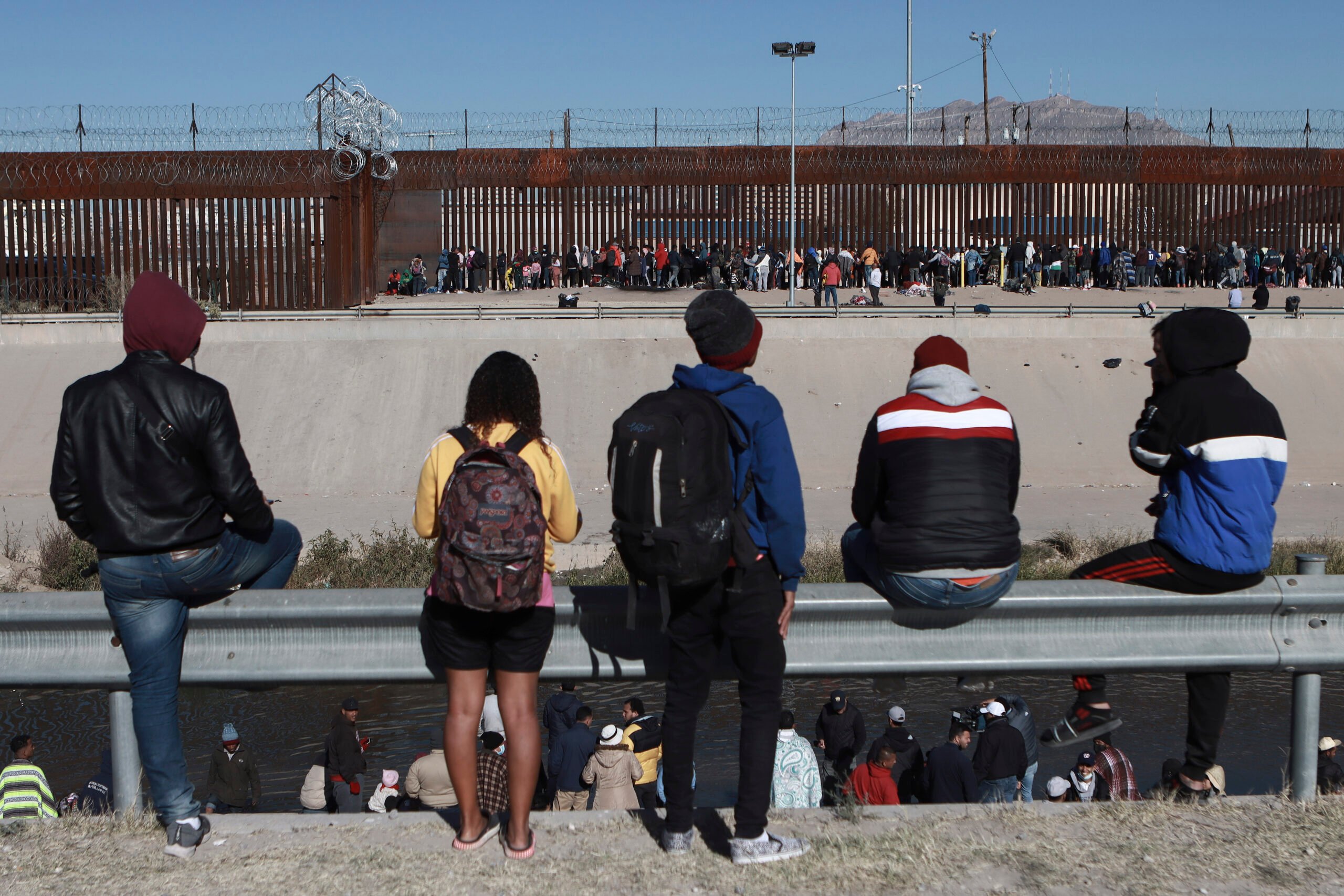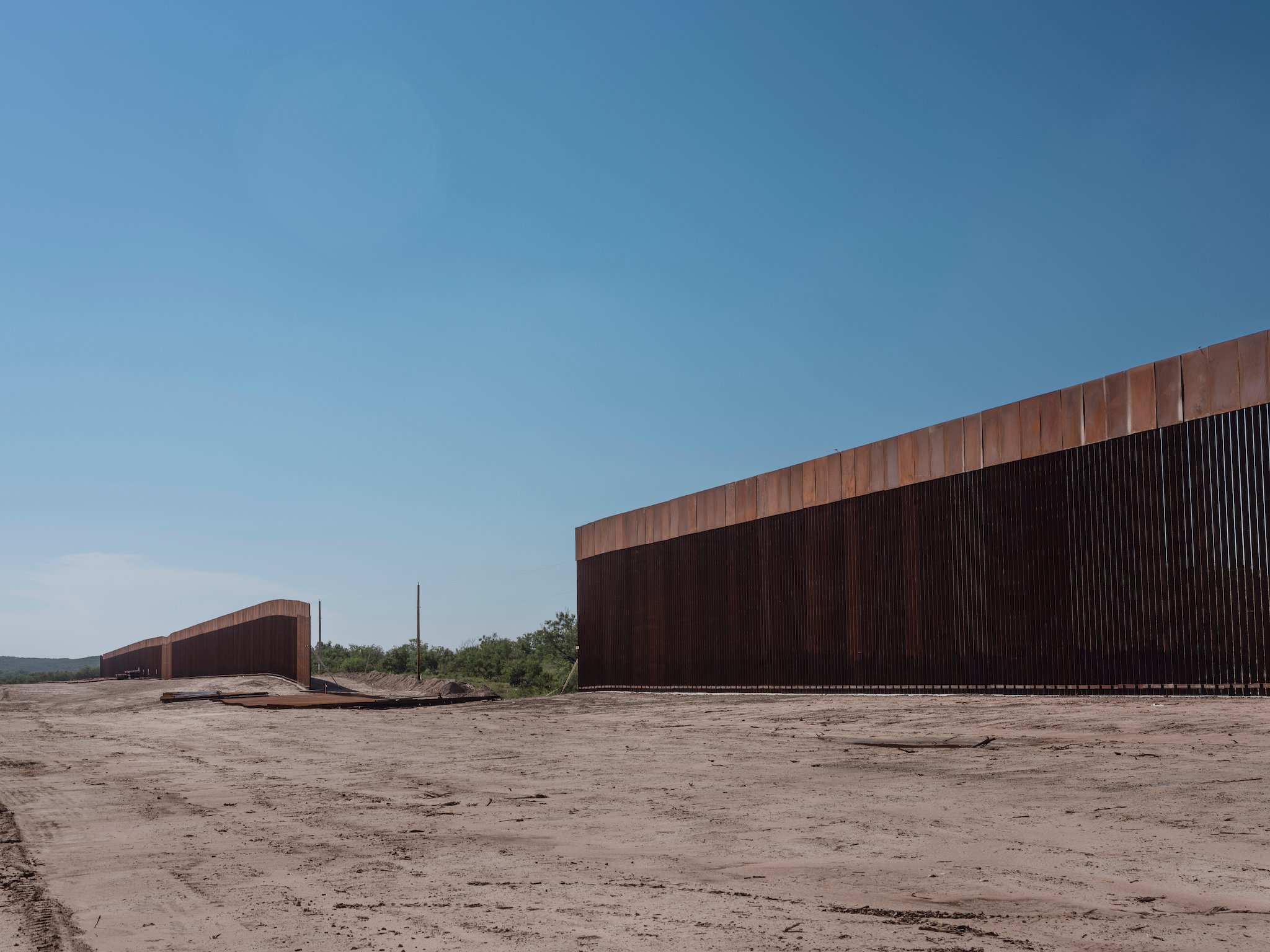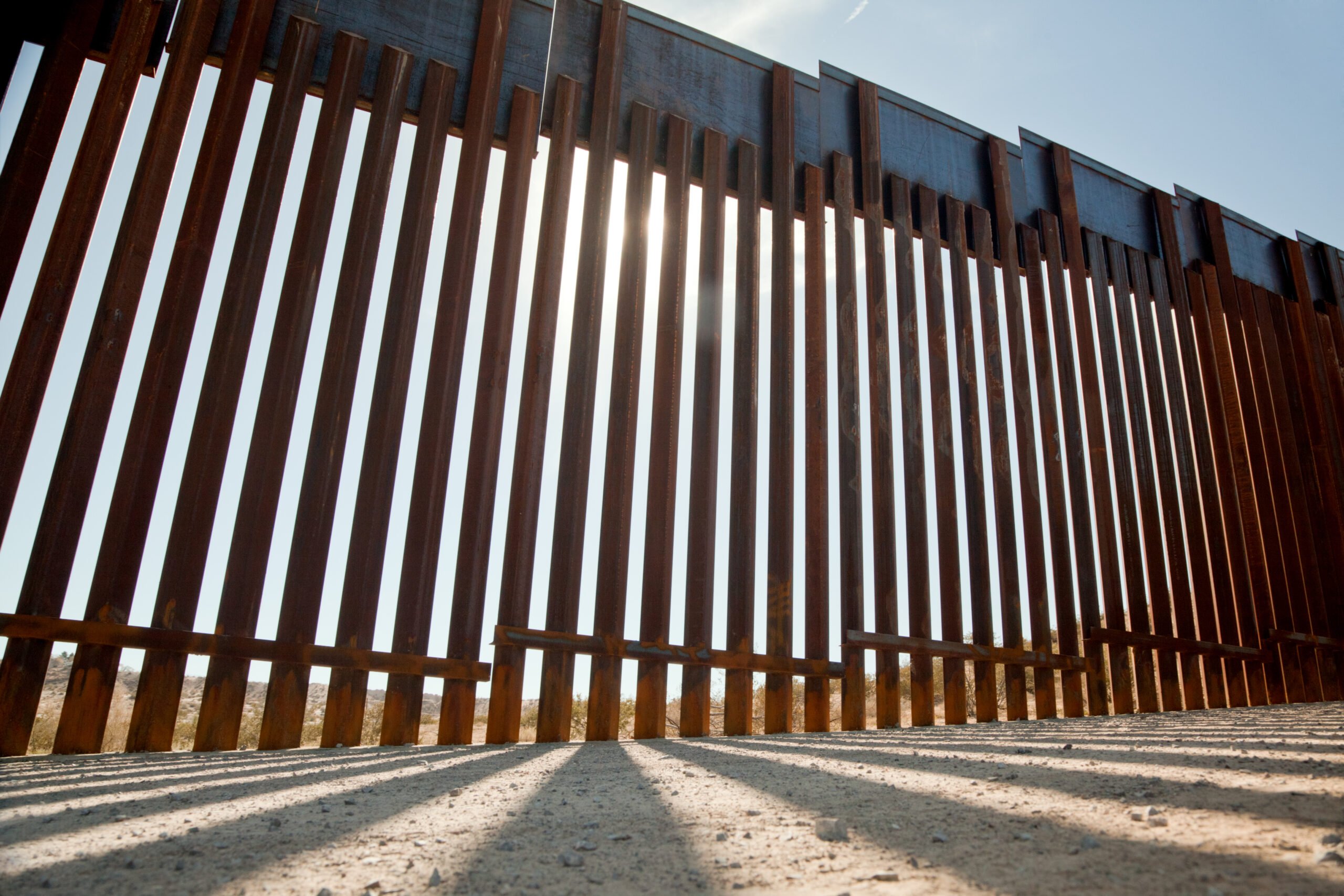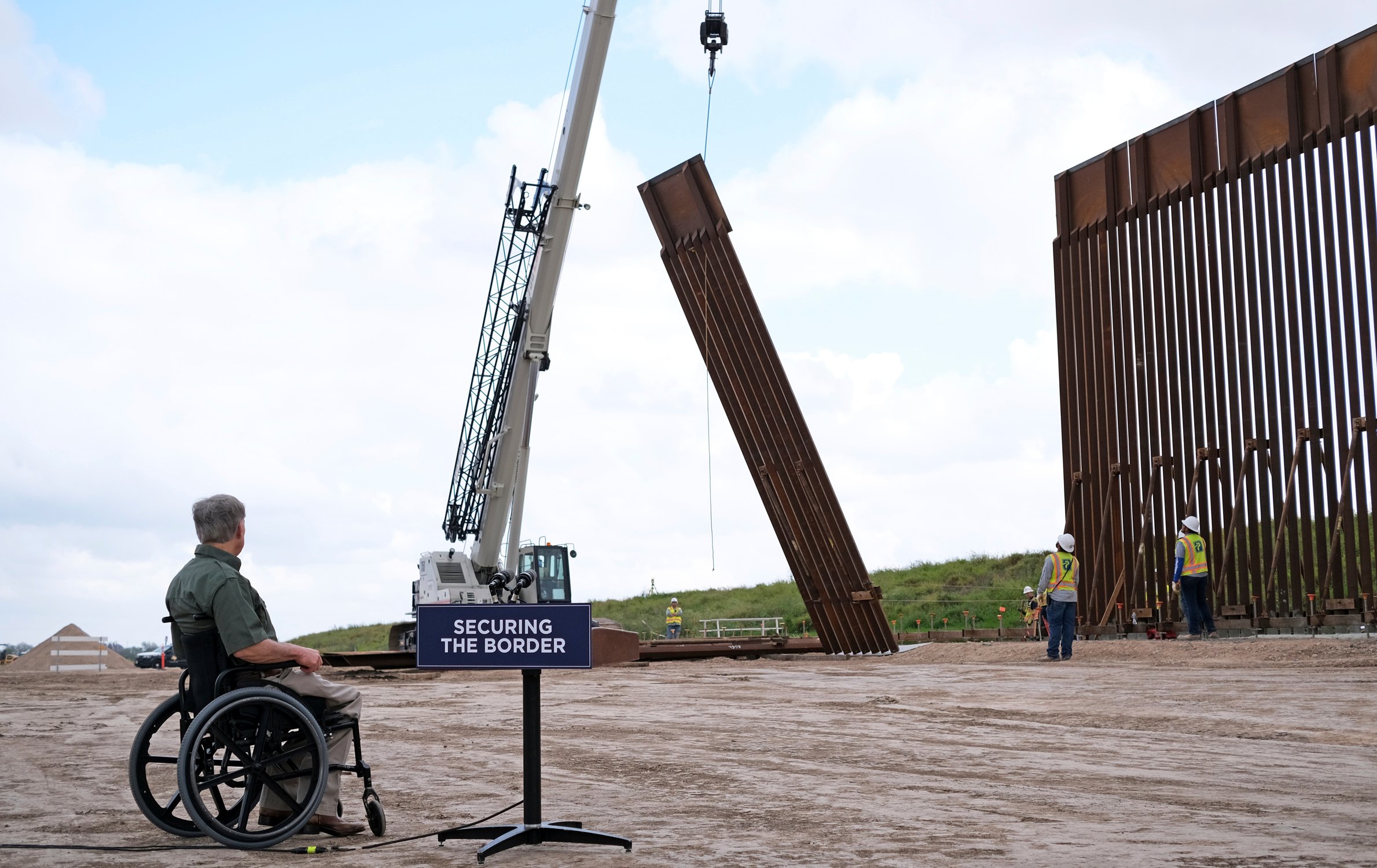
Biden Quietly Gave Border Wall Contract to Company Used by Trump, Abbott
“Clearly DHS, under the Biden administration, has no more respect for border residents than it did under the Trump administration.”

In late September, the Biden administration’s Department of Homeland Security (DHS) awarded a $229 million contract for border wall construction in Starr County to SLSCO Ltd., a contractor that also built wall for the Trump administration and is presently doing so for Texas Governor Greg Abbott. Starr County, a largely rural and flood-prone area in Texas’ Rio Grande Valley with a few towns abutting the river, currently hosts just a few short stretches of border fencing. SLSCO is a Galveston-based firm run by a family of GOP political donors.
Biden’s decision to build roughly 20 miles of border wall in Starr County made international news early last month when DHS waived a suite of environmental and historic preservation laws in order to speed construction. The move suggested a stark departure from Biden’s promise, made during his 2020 campaign, that there would “not be another foot of wall” built on his watch. In reality, Biden continued building a shorter version of Trump’s wall in parts of South Texas and has been increasing the height of fencing in Friendship Park in Southern California. But last month marked the first time Biden used DHS’ sweeping waiver authority—a relic of a Bush-era act of Congress—and the Starr County project is the president’s most significant border wall undertaking to date.
The flurry of press coverage of the October 5 DHS waiver overlooked the fact that the administration had already issued a construction contract for the project about a week prior. Some trade publications stated no contractor had been identified. Under the Trump administration, Customs and Border Protection (CBP) typically issued press releases when wall contracts were awarded, but no press release appears to have been issued in this case. (A press release was issued in late June announcing the 20-mile project.) The Texas Observer located the contract on the website usaspending.gov, and a Customs and Border Protection (CBP) spokesperson confirmed the contract and its purpose.
“The Biden administration’s decision to plow wildlife-killing border walls through some of the best remaining habitat in the Rio Grande Valley is a national disgrace.”
“Clearly DHS under the Biden administration has no more respect for border residents than it did under the Trump administration,” said Scott Nicol, a longtime anti-wall activist and researcher and board member of the Valley-based Friends of the Wildlife Corridor, upon learning of the contract. “Biden should use the remaining funds to mitigate some of the damage border walls have already done, not waste hundreds of millions of dollars to inflict more destruction.”
On October 17, a CBP official did describe the contract in a declaration filed in an ongoing lawsuit in which the State of Texas and other parties are attempting to force Biden to broadly resume constructing Trump’s border wall. This declaration was reported behind a hard paywall in Law360. The declaration states the contract is for 17 miles of new border barrier in Starr. According to usaspending.gov, the deal is for $229 million, yielding a per-mile cost of about $13.5 million. The website also states the contract begins on September 28 and ends March 30, 2026. The CBP spokesperson did not respond to a request for further details.
SLSCO, the Galveston company, is contracted to build a stretch of border wall in Maverick County for Abbott as part of the governor’s problem-plagued Operation Lone Star. It also won contracts under Trump for border wall in Texas and other states. The brothers who run the company have donated generously to Abbott, U.S. Senator John Cornyn, and other GOP candidates. The company was involved in a 2020 federal lawsuit, ultimately dismissed, about the illegal use of Mexican security guards in California and has been accused of bilking the City of New York in a deal related to COVID vaccinations. The company did not respond to an Observer request for comment.
After news of the October waiver broke, Biden told reporters that he had no choice in the matter: Congress had appropriated money for a border wall in the Rio Grande Valley in 2019 and, despite his administration’s requests, had not revoked that funding. Biden had delayed spending this money inherited from the Trump administration, but the funds now had to be spent according to Congress’ mandate before they expired—even though Biden believes border fencing is ineffective. DHS Secretary Alejandro Mayorkas made similar claims and stated that the move did not represent a change in the administration’s overall opposition to a physical border wall.
But border advocates have responded that—whether or not Biden must spend the money in question on border fencing—nothing legally required DHS to waive environmental and historic preservation protections in order to speed wall construction. “There is no legal requirement to waive laws that protect vulnerable border communities and wildlife in the appropriations language or elsewhere,” wrote a large coalition of organizations in an October 16 letter to the president. “This waiver of law has been issued at the discretion of your administration and your administration has the power to reverse it.”
Without the waiver, DHS would have to comply with more rigorous environmental and historical preservation requirements and be subject to lawsuits over this compliance—which anti-wall advocates say is exactly how things should go. “It really is just a fundamental unfairness that we can live in the Rio Grande Valley … and just have bedrock laws that are unquestioned throughout the rest of the United States not apply to us,” said Ricky Garza, Border Policy Counsel for the Southern Border Communities Coalition.
Garza said that complying with environmental laws would cost money, possibly spending down the money that Biden says must be used for new wall. Nicol argued the remaining money could also go to undoing damage done by stretches of wall built by Trump rather than erecting new fencing.
Dinah Bear, an environmental lawyer who served on the President’s Council on Environmental Quality from the 1980s through the 2000s, agreed on the waiver question. “There is absolutely no legal reason on the face of the earth that they had to issue the waivers,” she told the Observer. But she thinks “there is a very legitimate argument” that Biden is bound to spend the 2019 appropriations money on new wall mileage because that year’s bill specifically mandated construction of “pedestrian fencing” in the Rio Grande Valley.
DHS and the White House did not respond to emailed requests for comment for this story.
“The Biden administration’s decision to plow wildlife-killing border walls through some of the best remaining habitat in the Rio Grande Valley is a national disgrace,” Laiken Jordahl, a Southwest Conservation Advocate at the Arizona-based Center for Biological Diversity who helped set off the short-lived media frenzy last month with a viral social media post, told the Observer. “We urge the president to use his power to restore legal protections to the borderlands and stop the bulldozers from descending on this peaceful, serene corner of south Texas.”
Senior Writer Justin Miller contributed reporting to this story.



